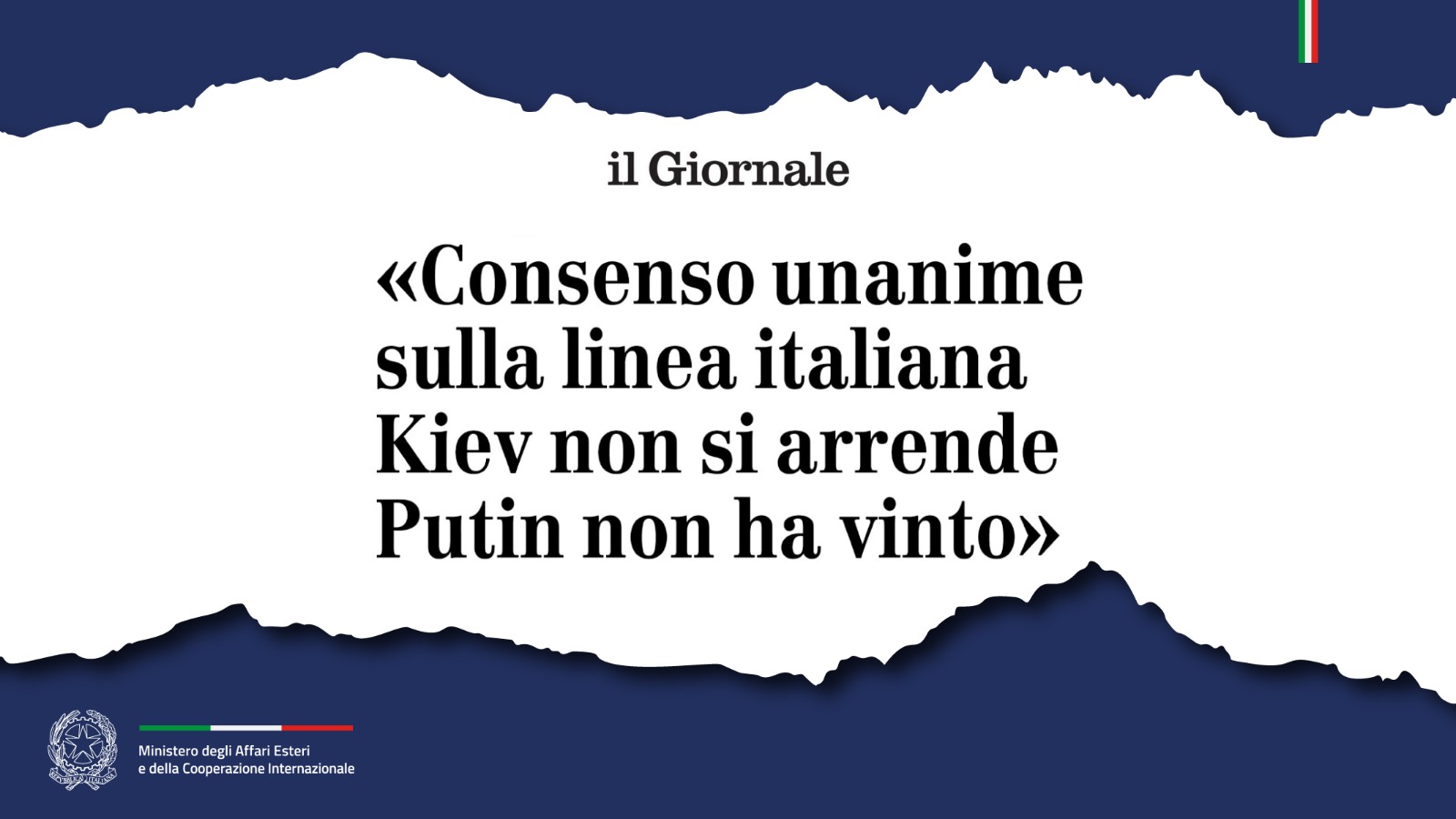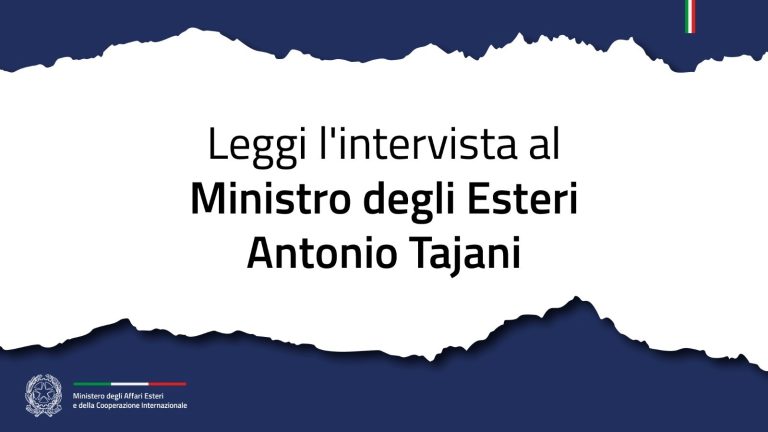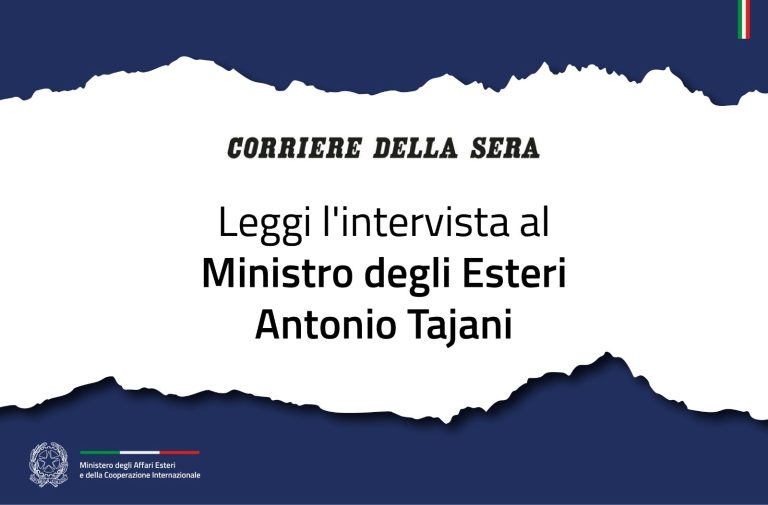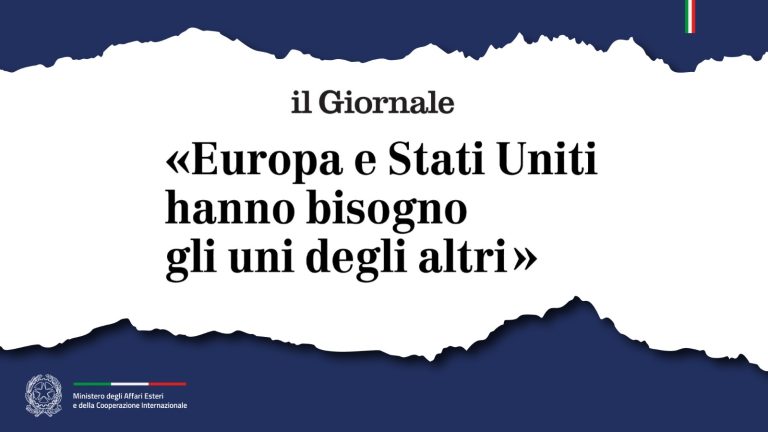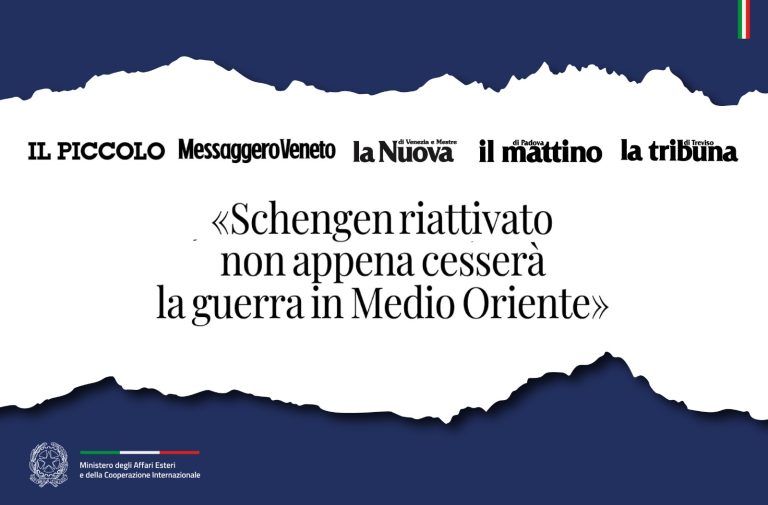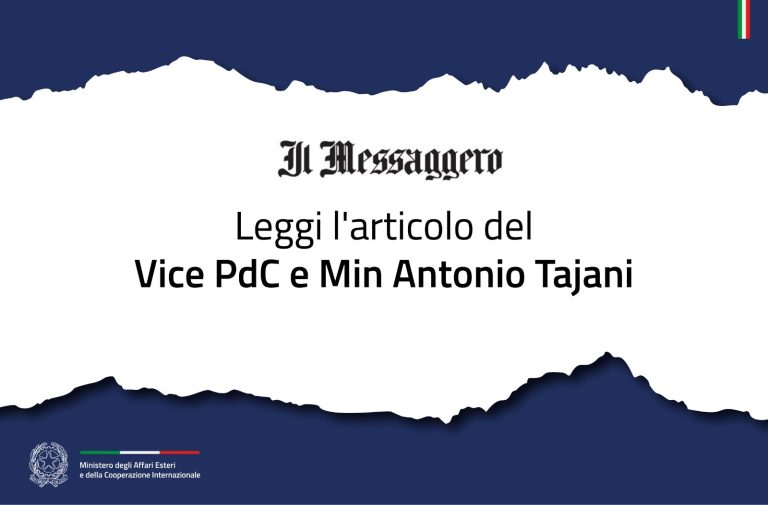Antonio Tajani is spending the day with family in Fiuggi, awaiting developments — but with no great expectations — from the Washington summit between Trump and Zelensky. The Deputy Prime Minister and Minister of Foreign Affairs is not overly optimistic, convinced that the road ahead remains long. Yet a piece of news from across the Atlantic sparks a glimmer of hope.
What is it, Minister Tajani?
“It’s been a positive day — another important piece in the mosaic of peace. Above all, because everyone agreed on the principle of guaranteeing Ukraine’s security, and that strengthens Zelensky’s hand in negotiations with Putin.”
Are you referring to Europe and the US endorsing the Italian proposal for a new version of NATO’s Article 5?
“Exactly. In essence, the Italian proposal has been accepted — to guarantee Ukraine’s independence through a mutual assistance system in the event of external attack.”
According to US mediator Witkoff, even Putin might accept this security clause.
“Our focus is on Kyiv’s security — which is also our own. Ukraine’s allies, including the US, would be obliged to intervene if Ukraine is attacked. It would be a positive sign if Putin were to agree.”
That would also dispel concerns over a potential US disengagement from Europe…
“Yes. What’s important is that everyone is on the same page. Zelensky will negotiate on borders, but this support strengthens his position when he eventually meets Putin — and I hope that happens soon. We must continue moving towards peace.”
The Trump–Zelensky meeting follows the President’s talks with Putin in Alaska, where the Russian leader appeared to come out on top. Would you agree?
“Putin is not a winner. In three years, he has failed to achieve what he thought he could in three days — the conquest of Ukraine. He’s being engaged in dialogue in the hope of reaching a fair peace — one that does not humiliate Ukraine.”
What’s your assessment of the Anchorage meeting?
“It was a step forward. It opened the door to the Washington talks. But the light is still a long way off — at the end of a very long tunnel — and the Trump–Putin meeting was far from decisive. Zelensky cannot simply accept all of Russia’s demands.”
European leaders, including Prime Minister Meloni, accompanied Zelensky to the White House — where he was treated rather brusquely during his last visit. What was the significance of that gesture?
“It puts Europe back at the heart of the political conversation — just as US Secretary of State Rubio called for in Munich last February. After all, the EU has imposed sanctions on Russia, and that makes it a stakeholder in the conflict.”
Was the aim to shield Zelensky?
“European and transatlantic unity gives Trump new leverage, and it strengthens Zelensky’s position when facing a united West.”
Putin’s demands are steep: he wants all of Donbas, including the parts not yet under Russian control, as well as Crimea.
“The only person who can speak about Donbas and Crimea is Zelensky. No agreement can be made over his head. We stand with him.”
Is it normal to be negotiating while Russia continues bombing?
“It’s proof that Putin is not seriously aiming to reach an agreement anytime soon. Attacks on civilians show he’s using every possible means to seize new territory.”
Is peace even further away in the Middle East?
“We’re calling for a ceasefire, the release of hostages, and an end to the bloodshed. Hamas also bears responsibility for the massacre. But Israel’s government has long gone beyond the line of legitimate and proportionate response to the 7 October attack. Once the battle against Hamas is over, the bombing must stop. We oppose the invasion of Gaza, the occupation of parts of the West Bank through settler expansion, and the attacks on Christians. Netanyahu is deaf to the appeals of half the world.”
Israel is said to be negotiating with Libya, Syria, and South Sudan to relocate Gaza’s residents?
“That’s an unacceptable idea. Our objective is the creation of a Palestinian state that recognises Israel. We support the Egyptian plan and are ready to contribute troops to a UN-led, Arab-guided mission to help build a Palestinian state.”
As Minister for Foreign Trade: does the tariff war favour China’s aggressive export policies towards the EU?
“Foreign trade figures are reassuring — exports rose in the first half of this year, thanks to the government’s strategy to diversify markets. In negotiations with the US, we’re heading towards a 15% tariff level, and where tariffs are higher for other countries, Italian products become more competitive. Italy has one of the world’s most diverse export ranges — second only to China. What’s worrying, however, is the strength of the euro against the dollar, which is hurting us. We need action from the ECB: rate cuts and bond-buying across EU countries — a new form of quantitative easing, like during the Covid crisis.”

